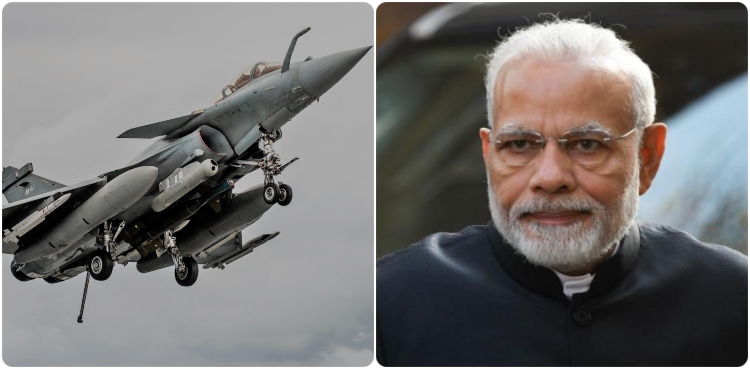In a swift and decisive response to India’s cowardly missile attack, Pakistan’s military shot down five Indian aircraft and destroyed an Indian brigade headquarter, ARY News reported.
Pakistan’s armed forces are giving a befitting response to India’s misadventure after overnight strikes.
Pakistan’s Defence Minister Khawaja Asif told Bloomberg TV that Pakistan’s military shot down five Indian jets and multiple drones in response to India’s airstrikes along the Line of Control. Information Minister Attaullah Tarar also confirmed this, stating that the jets were downed in various locations. The military told Reuters the downed jets included Rafale, Su-30, and MiG-29 planes, saying they targeted Indian aircraft after they attacked Pakistan.
Related: What are Rafale Jets
Pakistan armed forces also hit multiple Indian positions with precision, destroying the enemy’s brigade headquarters.
India had launched a cowardly missile attack on Pakistani territory, firing missiles from its airspace, Director General (DG) Inter-Services Public Relations (ISPR) Lieutenant General Ahmed Sharif Chaudhry confirmed on Wednesday.
Sources say Kotli, Muzaffarabad, Ahmedpur Sharqia Bagh and Muridke were hit by missiles. The DG ISPR said that the cowardly act will not go unpunished.
Lieutenant General Ahmed Sharif Chaudhry said that the Pakistani Air Force was quick to respond, activating its defense systems and preventing any Indian aircraft from penetrating Pakistani airspace.
“Pakistan will respond at a time and place of its choosing” he had said.
Pahalgam attack and aftermath
The Pahalgam attack, which occurred on April 22, 2025, resulted in the deaths of 26 people, mostly tourists, and sparked a significant escalation in tensions between India and Pakistan.
Following the attack, Indian Prime Minister Narendra Modi blamed Pakistan without evidence and “vowed retribution”, stating that India would identify and punish every terrorist and those behind them.
In response to the attack, India took several retaliatory measures against Pakistan, including barring Pakistani ships from docking at its ports, imposing a complete ban on all goods imported directly or indirectly from Pakistan, and suspending postal services from the country.
Both Pakistan and India also closed their airspace for each other. Furthermore, India also announced to suspend the Indus Waters Treaty of 1960, which governs the sharing of the Indus River system between the two countries, and downgraded diplomatic ties with Pakistan by declaring defense advisors in the Pakistani High Commission in New Delhi “persona non grata” and reducing the strength of the High Commissions.
Pakistan retaliated by suspending all trade with India and warned India that any violation of IWT or any military misadventure will result in a tit for tat response.
The tensions between the two countries continued to rise, with both sides trading barbs. Pakistan’s government briefed political parties on the prevailing national security environment, while India’s Defence Minister Rajnath Singh warned of a strong response to any threat against India.
The incident also sparked reactions from other countries, with Iran’s Foreign Minister offering to help defuse tensions between India and Pakistan. The situation remains volatile, with ongoing repercussions for diplomatic relations and trade between the two nations.


Leave a Comment